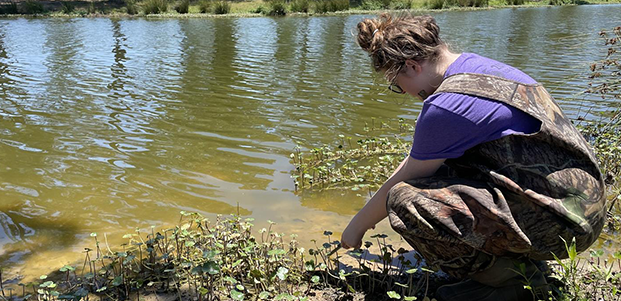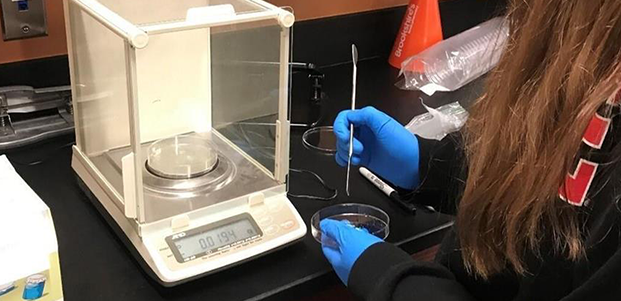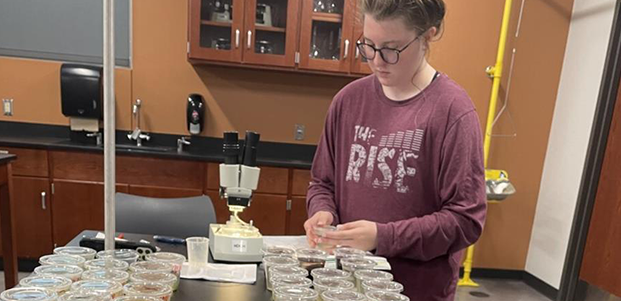Years-long research on aquatic ecosystems has served as a successful Supervised Agricultural Experience (SAE) for Madison Perkins.
"I have spent the last four years studying aquatic ecosystems with the effects of vegetation or age on the biodiversity of a pond, followed by the effects of algae control methods," said Perkins.
The first project measured the effects of vegetation removal on a pond's biodiversity.

"Five acres of a wooded area had been cleared to build a pond. During the building process, young fish traveled through the spillway pipe of the existing pond into the muddy pit," said Perkins. "Concerned for the fish, I wondered how the amount of vegetation in a pond affected the biodiversity."
The Gilmer FFA member's project consisted of removing ten meters of vegetation from one side of a pond while another ten meter section with vegetation remained intact.
"I measured the water quality and biodiversity over a six-month period to see if the disturbance altered the ecosystem," said Perkins. "Biodiversity levels for the ponds were measured using fish baskets, Hester Dendy's, a seine, a plankton net, and electrofishing."
Once she began researching in 2019, she quickly realized that she wanted to continue expanding on this topic for the next few years.

"For my second project, I wanted to compare the water quality and biodiversity levels in that same newly built pond to the levels of a 35-year-old pond," said Perkins.
She also compared species richness, number of species, and species evenness in both research projects.
"After noting high levels of blue/green algae in the older pond, my third-year research compared the effects of using copper sulfate, barley extract, or hay to control it," said Perkins.
For year four, her research purpose was to determine what effect cattle production and fertilizer application had on water quality and biodiversity.

“The project consisted of 20 ponds in seven watersheds around Gilmer, Texas,” said Perkins. “Ponds were divided into three experimental groups; fertilizer only, cattle only, and cattle and fertilizer, and one control group with neither cattle production nor fertilizer application.”
With the extensive time spent on research, the Texas FFA member took the insight and developed multiple presentations that were communicated to over 400 people, spanning 29 science fairs, including the National FFA Agriscience Fair.
Perkin's successful SAE project was recognized as the Star Lone Star in Agriscience at the 2022 Texas FFA State Convention and the 2023 First Place National FFA Proficiency in Agriscience Research - Integrated Systems.
Article republished with updates to highlight students' new successes from original Texas FFA News post on 4/19/2023.